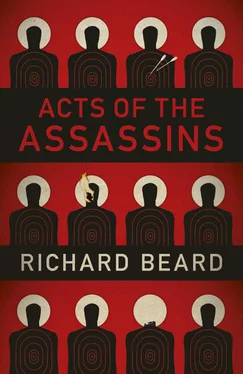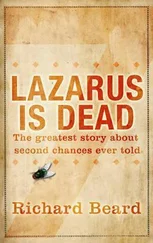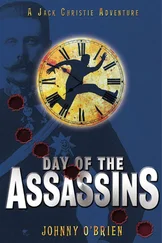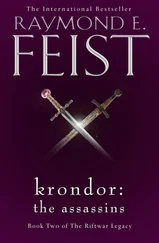He doesn’t understand. Nor do forty thousand paying spectators in the Circus Maximus. The distractions that follow, with upside-down Peter as the ailing centrepiece, seem trivial by comparison. Chariots race laps round the inverted cross, but the dying body of Peter holds the eye. The editor of the games has misjudged the audience, and his customers start to leave. At first single seats empty, gapping the stands, loners making for the exits. They ignore the gladiators and the talent contests. Then couples, excuse me please, coming through, before entire rows shift and break. Civilised people, educated to know how human instinct works, are unsettled by a victim who neither fights nor flees. This is unnatural behaviour. Why would anyone behave like this?
Before long Gallio has John on one side and Claudia on the other, but otherwise they’re alone in the stadium, watching Peter die. A crucifixion can take hours, and Cassius Gallio endures the death of Peter as an unforgettable picture, an eleventh grotesque killing to which Jesus doesn’t object. The floodlights click off, leaving a brief silver afterglow. Gallio waits for the end, and even from a distance he recognises the final moment when Peter’s limbs ease and his head relaxes and his chest ceases to heave. His body falls spent against the cross, and Peter the beloved disciple of Jesus is dead. He is dead.
So now they know. Jesus is not coming back, either in person or as code for a major event. A steward appears, the production is over, but they look beyond his official jacket at Peter’s body ignored in the scuffed centre of the arena. For Cassius Gallio reality is asserting itself, but for Christians, the no-show of Jesus is a shambles. Peter’s cross abruptly tilts in its slot, skews Peter’s feet sideways, refuses a neat alignment with heaven.
‘Where will we go?’ John says. ‘What will I do?’
Claudia stands up, but Gallio won’t be rushed. With Jesus he distrusts any sense of an ending, and none of the claims made by the disciples have yet been disproved. They never said where Jesus would come back, or specifically when. Gallio is disappointed by Jesus’s absence from the Circus Maximus, of course he is, but he can still think rationally. He turns towards John.
‘You’re the last of his disciples alive.’
Cassius Gallio touches the side of John’s face, runs his fingers over John’s eyebrow and along his boyish cheekbone. ‘You must be the one, the disciple Jesus loved.’
‘Enough now,’ Claudia says. ‘Nothing they say is true.’
THE GREEK ISLAND of Patmos smells of thyme and warm sea breezes. John the disciple of Jesus keeps hold of Cassius Gallio in his usual way, gripping him by the elbow, neither of them clear about who’s the guide and who the guided. They pass a mulberry tree where barefoot children laugh, climb a ladder, collect berries into baskets. Mulberry juice stains their arms and legs, and in their game of tag they leave blood-red handprints on exposed brown skin. John doesn’t see what Cassius Gallio, who was never chosen by Jesus, can see any day of the week.
From a distance unkempt old men can look alike. Up close the differences between Gallio and John become more apparent: Gallio has fierce blue eyes while John is blind, but Gallio also has a slackness at the sides of his mouth. Arthritis has dried his knees and knuckles, and last night a useful tooth loosened in his head.
Gallio coughs up phlegm, spits to the side of the path. Jesus has not come back, though John hears voices that insist on their daily walk. From the cave past the mulberry tree along the path to the cliff edge, where Cassius Gallio and John the last disciple of Jesus stand exposed to the eye of god.
‘Sorry,’ Gallio says. Another morning, another beautiful day on which to break the discouraging news. ‘Not a cloud to be seen in the sky.’
When they first arrived on the island, years ago, they lived more confidently in hope than now. Gallio kept John close because after so much time, such intense speculation, he was jealous of his right to encounter Jesus. Jesus has promised to return in the lifetime of his beloved disciple, and John is the only disciple left alive. Therefore he is the beloved.
Cassius Gallio used to watch the clouds on John’s behalf, each as eager as the other for the weather of Jesus to cover the sun. Mostly, on a Greek island, the clouds stay away, or appear as distant lines like text in an unknown language, gradually washed out as dawn becomes day. The early morning Aegean sea, Gallio thinks, is more lovely against the blue Aegean sky than seems strictly necessary.
As a group of three they had left the Circus Maximus after dark, half a moon slipping onto its back over the lights of the eternal city. John was the beloved disciple, and as the taxi found a thread through the post-stadium streets John said kill me now. Those were the words he used.
‘Please. Now is as good a time as any.’
‘You expected Jesus to appear, didn’t you?’
‘The set-up was perfect,’ John said.
Claudia had to lean round from the front seat, so that unlike in England she could hear every word.
‘The Circus was a piece of theatre like the crucifixion,’ she filled in the gaps left by John, ‘only this time the important people, the rulers of the world, could have witnessed the power of Jesus.’
‘But Jesus couldn’t save Peter,’ Gallio said. ‘Evidently.’
From Claudia’s kitchen to Alma’s orphanage to the Circus Maximus, for Cassius Gallio this had been the longest day. ‘You’re the last disciple, John, and Jesus promised to come back in your lifetime.’
‘So kill me and bring him down. Hurry him up. I’ll join the others and you’ll find Jesus. That’s what you set out to do.’
‘Why rely on us?’ Claudia said. ‘Get your own hands dirty. If you want to die then kill yourself, like James did.’
‘James was bludgeoned to death in the street.’
‘Do it now.’ Claudia taunted him from the front seat. ‘Force Jesus to show himself. Throw yourself out of a moving car.’
Gallio reached across and pushed open the door, because he could appreciate Claudia’s speculative logic. The wind of the city rushed in. The driver braked.
‘It’s not my life to take,’ John said. He reached for the door, missed the handle, grabbed again and pulled it shut. Outside the car, after the driver had activated the central locking, monuments gathered pace, back to the speed limit and beyond. Life will go on.
‘Out of the question,’ John said. ‘I might be wrong about the time and place. Jesus makes the decisions, knows when and where.’
‘Not to mention how,’ Claudia said. ‘Falling out of a Roman taxi can’t contend with crucifixion.’
‘Or skinned alive,’ Gallio said. ‘Or sawn in two.’
‘Jesus needs someone else to provide the requisite horror, doesn’t he? None of you act alone. To push your religion forward you need some of us, those who aren’t disciples, to be assassins.’
Cassius Gallio had once heard Lazarus make the same complaint about his best friend Jesus. He could never do anything by himself.
‘Jesus used me to stage his execution,’ Gallio said, not as an accusation but as a statement of sad fact. ‘I took responsibility for killing him. I lived with the guilt of crucifying a man whose record never warranted a charge of terrorism. Then it turns out he may not have died. Jesus hasn’t been fair on me, and neither have you, his disciples. Including you, John. You collude in the various deceptions.’
‘But today is John’s lucky day,’ Claudia said. ‘We can give him what he wants. John, we’re taking you to your killer.’
‘Fate will do the rest,’ Gallio said, giving up on his training, on every pledge he’d made to civilisation. He could do no more. He would deliver John alive, which would go some way to atoning for his desertion, even though it meant Valeria came out ahead. Valeria was always the winner, but Cassius Gallio was fatalistic about that, too.
Читать дальше












